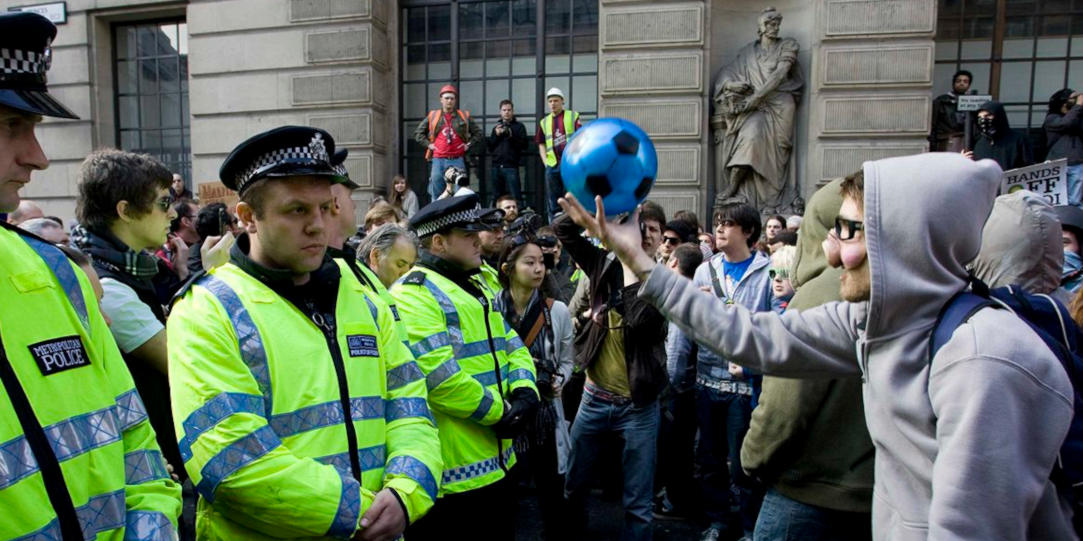Last week, the media was transfixed by the release of Louise Casey’s review into the behaviour and culture of the Metropolitan Police. For any Londoners who have been living under a rock, the report found the force to be institutionally racist, misogynistic and homophobic. The review was commissioned last year in response to a public outcry following the kidnap, rape and murder of Sarah Everard by Met police officer Wayne Couzens, and the conviction of his colleague serial rapist David Carrick for dozens of offences against women spanning two decades.
Casey found the Met had ‘not protected its female employees or members of the public from police perpetrators of domestic abuse, nor those who abuse their position for sexual purposes.’ Complaints about officers were ‘more likely dismissed than acted upon,’ and predatory behaviour had been ‘allowed to flourish.’
No surprise
Needless to say, the Met remains dominated by white British men. On its current recruitment trajectory, the review found it will take another 30 years for women to be fairly represented in the Met workforce. For ethnic minorities, it will take 38 years. To Doreen Lawrence, mother of black teenager Stephen Lawrence who was murdered by a gang of white supremacists in south-east London in 1993, these findings come as ‘no surprise’. She said: ‘It is not, and has never been, a case of a few “bad apples”. It is rotten to the core. Discrimination is institutionalised within the Metropolitan Police and it needs changing from top to bottom.’
Doreen Lawrence and her family suffered further trauma when the Met bungled the investigation into Stephen’s murder, which led to the charges being dropped. Four years later the Stephen Lawrence inquiry, led by Sir William Macpherson, found the original police investigation was ‘marred by a combination of professional incompetence, institutional racism and a failure of leadership.’
Thirty years on from Stephen’s death, has anything changed? Seemingly not, according to the Casey Review. So the next logical question, surely, is why not?
The colonial roots of the Metropolitan Police
On the day the review was published, academic Kehinde Andrews tweeted: ‘It’s only news that the Met Police are institutionally racist if you haven’t been paying attention for the past seventy years’.
It’s a valid point, but I think we need to look even further back in time. In the early 1800s, when the British Empire occupied Ireland, then-Irish Secretary Sir Robert Peel became concerned about Irish resistance to colonial rule. He devised a plan to quell social unrest and normalise the presence of British intelligence-gathering throughout towns and villages across Ireland. The Royal Irish Constabulary was a military-style police force, set up to curb unrest and enforce obedience to the Crown. It was never designed to protect ordinary Irish people from crime. The ultimate goal of the RIC was to protect the financial interests of the British Empire, and it did so very effectively.
If they recognised institutional racism as a concept, they’d have to admit their indefensible failure to tackle it
It was so successful that Sir Robert Peel adopted the same model when he set up the Metropolitan Police in London in 1829. The repeal of the Combinations Act five years earlier allowed English workers to collectively organise, and the ruling class wanted to find a way to suppress and control these workers, whose cheap labour they relied upon. Adopting the policing model that Sir Robert Peel had successfully tested in Ireland was the best way to protect the financial interests of the ruling class.
Unshakeable roots
Now, nearly 200 years later, a cascade of official reviews has shown that the Metropolitan Police cannot shake its colonial roots. The idea that the Met is part of a legitimate ‘criminal justice system’, designed to keep our communities safe by protecting victims of crime and punishing perpetrators, simply doesn’t stand up.
In a patriarchal society, an institution that was set up to protect private property and wealth could never be relied on to safeguard female rape victims and prosecute their perpetrators: when this happens, it is a fluke of the system, not a predictable outcome. The rape conviction rate of one per cent is not likely to improve while the Metropolitan Police are in charge. Similarly, is it really a surprise to anyone that a system designed to enforce colonialism, the exploitation of an impoverished racial group by a powerful empire, is institutionally racist to its very core?
As Sir John Woodcock, then HM Chief Inspector of Constabulary, told the Home Affairs Select Committee in 1992: ‘What is happening to the police is that a 19th Century institution is being dragged into the 21st Century … the police never were the police of the whole people, but a mechanism set up to protect the affluent from what the Victorians described as the dangerous classes’.
Responding to the Casey report last week, Met Police Commissioner Sir Mark Rowley would not directly acknowledge ‘institutional racism’ in the force, but accepted there are ‘systemic failings’ and ‘cultural failings’. He avoided using the term ‘institutional racism’ because he views it as ‘political language’.
The idea that the Metropolitan Police – an institution set up to further the political and financial interests of the ruling elite, that remains in many ways virtually unchanged from its origins in the 1800s – can exist outside of politics is truly beyond belief. It’s unlikely that Rowley truly believes this himself, of course. But discrediting ‘lefty liberal’ terms like ‘institutional racism’ is yet another way the ruling class invalidates the suffering of minority ethnic communities. If they recognised institutional racism as a concept, they’d have to admit their indefensible failure to tackle it.










